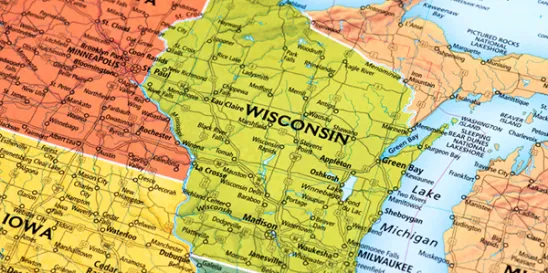On March 21, Wisconsin enacted into law Assembly Bill 574, positioning it as the third state, following Nevada and Missouri, to establish a comprehensive regulatory framework for earned wages access (EWA) services and products. The legislation is set to take effect September 1, 2024.
The law applies to both consumer-directed and employer-integrated EWA products and requires EWA providers to obtain a state-issued license from Wisconsin’s financial services regulator, the Division of Banking, in order to provide services. Under the licensing regime, EWA providers are required to provide disclosures regarding their business and products, comply with applicable privacy laws and submit an annual report to the state regulator. Registration on the Nationwide Multistate Licensing System & Registry is required.
In addition to the licensing requirements, the law has the following provisions:
- One free option. EWA providers must offer at least one reasonable option for a consumer to obtain the EWA product at no cost to the consumer.
- Fee disclosures. A provider must inform the consumer of his or her rights under the agreement and fully and clearly disclose all fees associated with the EWA product.
- Tipping disclosures. Tipping is not banned. However, providers who solicit or receive tips must (i) disclose that tipping is voluntary, both prior to each transaction, and in the service contract; (ii) refrain from misleading or deceiving consumers about the voluntary nature of tips; and (iii) refrain from making representations that tipping will benefit any specific individuals.
- No tip or fee sharing. EWA providers may not share with a consumer’s employer any fees or tips received from or charged to a consumer for EWA services.
- No credit scores. EWA providers will be barred from requiring credit reports for users.
- No fees. EWA providers may not charge late fees, deferral fees, interest, or other penalties or charges for a consumer’s failure to pay outstanding proceeds, fees, or tips.
- Debt reporting and collection limits. EWA providers may not (i) report a consumer’s nonpayment to a consumer reporting agency or debt collector; or (ii) attempt to collect on a consumer’s EWA debt, either by itself or through a third party.
Putting it into Practice: States are wasting no time in enacting their own EWA legislation, while the CFPB, which has promised its own EWA regulations, remains dilatory. EWA providers should promptly evaluate their business and compliance procedures to ensure they adhere to the new law given the law’s September effective date. EWA providers should also be prepared to apply for a license promptly once the division releases an application form.





 />i
/>i
